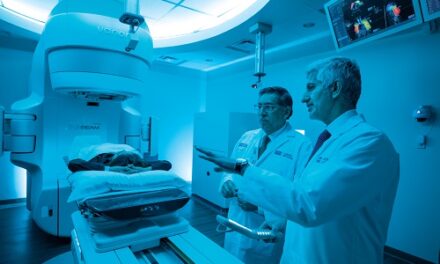 While COVID-19 is known for causing respiratory issues, it also can affect other parts of the body, including the cardiovascular system. Even after symptoms go away, those who have had the virus may experience long-term effects, though the full extent of the damage has yet to be known.
While COVID-19 is known for causing respiratory issues, it also can affect other parts of the body, including the cardiovascular system. Even after symptoms go away, those who have had the virus may experience long-term effects, though the full extent of the damage has yet to be known.
“What we are learning about the virus, we are learning the hard way, unfortunately,” explained Juan-Carlos Brenes, M.D., FACC, FASE, FACP, cardiologist at Memorial Cardiac and Vascular Institute. “The unique thing about this virus is that while 40 percent of people who have it show no symptoms, others may have moderate or severe symptoms. In some cases, it can cause death. It can linger after a person recovers, and while some just lose their sense of smell or taste, others end up intubated with severe respiratory insufficiency.
“Because this virus has so many different presentations, it can make the treatment approach quite challenging,” he adds.
According to Dr. Brenes, COVID-19 can affect the cardiovascular system in three ways. The virus can go directly to the heart muscle, causing inflammation of the heart, or myocarditis. It also can have an indirect effect, causing a drop in blood pressure, hypoxia (low oxygen in the blood), and an increase in the tendency to create blood clots.
“In the third case, because of the pandemic, we have seen a decrease in the number of people coming to the hospital because they fear contracting the virus,” said Brenes. “A lot of people are thinking twice before going to the ER and seeking attention even when they are having heart attacks; by the time they come to the hospital, it’s too late.”
While most of the symptoms of the virus are usually respiratory, and can include cough, shortness of breath, chills and fever, it can also cause tachycardia (a faster heartbeat).
“In mild cases, it can cause palpitations, and in moderate cases, it will have a more pronounced effect on breathing,” said Dr. Brenes. “Patients may experience full cardiogenic shock in severe cases because their hearts can’t pump blood effectively.”
Even those who recover from COVID-19 need to be aware of the long-term effects, which can include residual inflammation of the heart.
“This is very important because a lot of people who had COVID didn’t go to the hospital—they stayed at home until they were better,” said Dr. Brenes. “But they should still definitely speak with their doctors about whether they need to see a cardiologist.
“For example, athletes need to be cleared before they go back to participating in competitive sports because of the possibility of long-term effects that could lead to other problems,” he added. “We’ve seen studies on young people who have suffered from COVID-19, and even two months later, there is still evidence of heart inflammation. This type of situation can cause problems for competitive athletes or anyone else.”
Those who suffer from other cardiac conditions need to be especially careful, as it has been reported that patients with high blood pressure and heart disease are more prone to develop complications from the virus.
“There is no doubt that there are certain cardiac conditions that make patients more susceptible to complications from the virus, though not necessarily to get infected by the virus,” said Dr. Brenes. “For example, while patients with previous cardiovascular issues who get the virus may present with high blood pressure, it doesn’t mean that every person with hypertension is prone to develop COVID-19.”
Whether people have previous cardiovascular conditions or not, Dr. Brenes has one very important piece of advice.
“Go get vaccinated,” he said. “That’s the bottom line.”
According to Dr. Brenes, the FDA needs to enroll between 3,000-5,000 people to determine the safety of a vaccine, and the initial COVID-19 vaccine trials have included between 30,000 and 40,000 people.
“That’s very good data in terms of safety,” he explained. “While the rollout has been challenging, keep checking with your healthcare provider until you can get the vaccination.”
Dr. Brenes added that studies on flu vaccinations have shown that these vaccinations reduce the risk of hospitalization for heart disease, as well as pneumonia.
“I’m looking forward to seeing studies about the potential implications of the COVID-19 vaccine reducing cardiac-related COVID-19 complications,” he said. “I’m very optimistic about the positive effects of the vaccine not only in reducing the chances of getting severe COVID-19, but of reducing the chances of complications after contracting the virus. It gives me a lot of hope.”


























